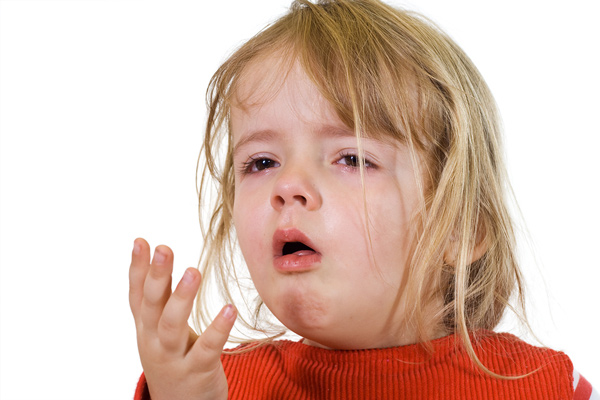Prevent cough before cold weather
Usually, the baby coughs due to a cold, rhinitis or an acute upper respiratory infection. The disease progresses from 2 to 3 days and is accompanied by symptoms such as sneezing, nasal congestion, sneezing, changing voice, fever, cough .
Small tips to help prevent coughing for babies when it's cold
1. Give your child honey every morning after waking up. For children aged 2-5 years old, you should only give children half a spoonful of honey. For children aged 6-11 years, give your child a full teaspoon. Avoid giving children under 1 year of age to drink honey, because honey can cause poisoning for babies and children under 1 year old.

2. If you have a smoker or pipe tobacco user in your home, you should never let your baby stand near people who are smoking because direct or indirect smoke can cause irritation of the respiratory tract and This can form cough attacks.
3. Do not give children cold or hot water. Just give your child a warm bath and remember to add a few drops of thyme or sage in warm water to help improve your child's breathing.
4. Always pay attention to a healthy and natural diet for your baby with a variety of healthy foods. If you are breast-feeding, actively breastfeed and add the same diet to your baby.

5. Always encourage your baby to be active every day by letting them walk in the park. To do this, parents need to improve their physical fitness and remember to wear a jacket when going out in the cold and windy outdoors.
6. For toddlers, you can give your child homeopathic medicine without worrying about any side effects.
7. Your baby must always have enough water. Therefore, her mother always pays attention to providing the baby with enough water in the winter, although the child does not call for thirst.

Note
If your baby is still living normally, there is no special sign just to take care and follow up is enough. Give your baby plenty of water and rest in a well-ventilated environment to help them breathe better. When you want to use medicine for your child, consult your doctor first.
When your baby has a history of acute upper respiratory infection , you need to take care of your baby carefully, such as sucking out nasal secretions, small antiseptic to prevent possible recurrence. Take your baby to the doctor if the disease progresses to a severe level such as a high fever and stop eating.
The timely and proper treatment also prevents the baby from other complications such as pneumonia, bronchitis and rhinitis.
If your child coughs and is accompanied by fever. This condition is not relieved for 2-3 days after you have applied home care measures for your child, so it is important for your baby to see and treat him or her .
- Prevent and treat cough when the weather changes
- How does the record cold in China affect Vietnam?
- America is so cold that sharks have to freeze to death
- Properly handle when a child coughs from the sky
- Cold air intensified, the North continued to be cold from March 1
- The cold price still covers the North despite the sunny afternoon
- How is the cold weather damage?
- Hanoi is cold and cold, showers return
- Cold prices in the US and Canada continue to be complicated
- The north received cold air to strengthen and recur cold weather
- Good tips for relieving cough immediately
- Cold in the Middle Ages is returning to Earth
 Green tea cleans teeth better than mouthwash?
Green tea cleans teeth better than mouthwash? Death kiss: This is why you should not let anyone kiss your baby's lips
Death kiss: This is why you should not let anyone kiss your baby's lips What is salmonellosis?
What is salmonellosis? Caution should be exercised when using aloe vera through eating and drinking
Caution should be exercised when using aloe vera through eating and drinking